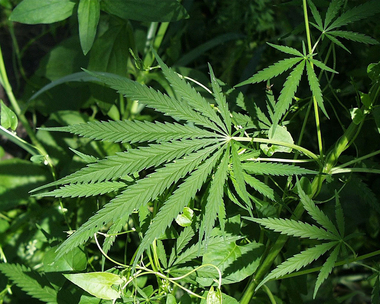Supreme Court pot announcement extends legalization debate

DENVER (AP) — Marijuana is a political debate, not a legal one — for now.
The U.S. Supreme Court announced Monday that it won't consider a lawsuit filed by two other states challenging Colorado's pot law. But lawyers say that Nebraska and Oklahoma officials could pursue other legal challenges down the road.
For now, the many states considering pot laws this year won't have immediate guidance from the nation's high court about whether they're free to flout federal drug law by regulating the drug.
Instead, the 26 states and Washington, D.C., that allow marijuana for medical or recreational purposes don't have any immediate roadblocks on their marijuana laws.
Nebraska's attorney general said Monday that his state would consider trying again to challenge Colorado's pot law, just not directly to the nation's highest court.
"What it basically tells us is to go forth in the federal district court to start off the lawsuit," Nebraska Attorney General Doug Peterson said.
A lawsuit by some Nebraska and Kansas law enforcement officials was dismissed last month by a federal court in Denver.
"It doesn't mean that all the legal wrangling is done," said Sam Kamin, a law professor at the University of Denver who studies drug law.
"It just means that for a case to end up before the Supreme Court before we have a new president is extremely unlikely."
Marijuana legalization advocates immediately seized on the Supreme Court's announcement as a signal that states are free to legalize marijuana if they wish.
"States have every right to regulate the cultivation and sale of marijuana, just as Nebraska and Oklahoma have the right to maintain their failed prohibition policies," said Mason Tvert, spokesman for the Marijuana Policy Project.
"Colorado has done more to control marijuana than just about any other state in the nation. It will continue to set an example for other states that are considering similar laws in legislatures and at the ballot box."
But Colorado officials weren't so sure. Colorado Attorney General Cynthia Coffman, a Republican who opposes legal weed, said that while Nebraska and Oklahoma chose the wrong legal approach, pot is very much a question in need of federal guidance.
"The legal questions surrounding (marijuana) still require stronger leadership from Washington," Coffman said in a statement Monday.
There is a pending federal lawsuit challenging Colorado's pot law, though the plaintiffs aren't from Nebraska or Oklahoma.
Two southern Colorado residents last year sued a neighboring marijuana company, saying the business violates federal drug law and should be blocked. The residents are represented by the Washington-based Safe Streets Alliance, which seeks to have federal court throw out the state's entire regulated marijuana industry. A Denver District Court hearing in that case has not been scheduled.
___
Associated Press Writer Anna Gronewald in Lincoln, Nebraska, contributed to this report.
By Kisten Wyatt. Copyright 2016 The Associated Press.
The Gayly- 3/21/2016 @ 2:20 PM CST





